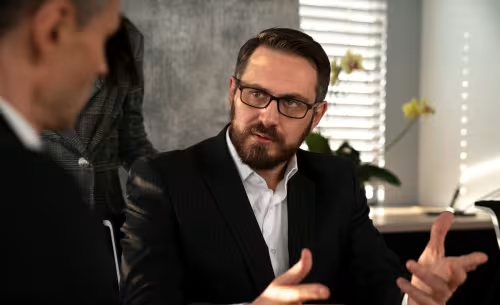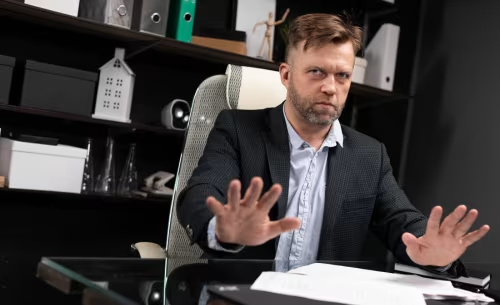Disclaimer: This guest post was written by a third party and is for informational purposes only. It does not constitute legal advice or create an attorney-client relationship with The Meehan Law Firm. For legal advice, please contact our office.
.png)
.png)
In California, the idea of "erasing" a felony often brings hope to individuals seeking a second chance. While complete erasure of a criminal record is not possible, expungement offers a legal path to clear a conviction from public view. The process, however, is not automatic or available to all felony convictions. It demands careful eligibility review and strict adherence to California law.
Can a Felony Be Expunged in California?
Expunging a felony in California is possible under specific conditions. According to California Penal Code § 1203.4, individuals convicted of felonies may petition the court to dismiss their convictions if they meet certain requirements. The court can set aside a guilty plea or verdict and dismiss the case, effectively allowing the individual to lawfully state that they have not been convicted of that felony in most situations.
However, not all felony offenses are eligible. Violent felonies, certain sex crimes involving minors, and other serious offenses cannot be expunged. Furthermore, individuals who served time in state prison for their felony (as opposed to county jail) generally do not qualify unless specific conditions under Proposition 47 or Proposition 64 apply.
Eligibility Requirements for Felony Expungement
Meeting eligibility requirements is the first step toward expungement. Key criteria include:
- Successful completion of probation or early termination of probation.
- Full payment of all fines, fees, and restitution.
- No new criminal charges pending.
- The felony must be eligible for reduction to a misdemeanor (in some cases).
In addition, individuals must demonstrate rehabilitation and compliance with court-ordered obligations. Failure to meet any of these conditions can result in the denial of an expungement petition.
The Expungement Process in California
Pursuing an expungement involves several steps, and careful attention must be paid to the details.
1. Record Review:
The first step is obtaining a complete copy of one's criminal record to confirm eligibility. You may want to run a “live scan” which will provide you with a copy of your criminal record.
2. Petition Filing:
The petitioner must file a formal petition with the court that handled the original case. In some cases, a request to reduce the felony to a misdemeanor under Penal Code § 17(b) is necessary before petitioning for expungement.
3. Court Hearing:
Most cases require a hearing where the judge will review the petition. The District Attorney's office may oppose the expungement, particularly if the petitioner has subsequent offenses or did not fully comply with probation terms. The court will also ask the opinion of the probation department.
4. Judicial Decision:
If granted, the court sets aside the conviction, and the record reflects a dismissal under Penal Code § 1203.4. The court is supposed to send this order to the Department of Justice in California to ensure your record is cleared.
It is important to understand that expungement does not completely erase the record. Law enforcement and government agencies will still have access to the conviction, and certain professional licensing boards may require disclosure. If your conviction involved a DUI, your DUI may still be reflected in your driving record, even if the conviction is expunged by the Court.
Common Challenges to Expungement
Although expungement offers a powerful tool for moving forward, challenges often arise. Missing court documents, incomplete probation terms, outstanding financial obligations, or subsequent criminal behavior can hinder the process.
In some cases, the District Attorney or probation department may oppose the expungement. The petitioner must be prepared to present evidence of rehabilitation, such as proof of employment, community service, or character references, and potentially an expression of remorse.
Certain felonies pose additional hurdles. Crimes that involve significant violence, financial fraud, or harm to minors may trigger heightened scrutiny, even if technically eligible for expungement.
What Expungement Achieves - and What It Does Not
Expungement can offer major benefits, including improved employment prospects, housing opportunities, and restoration of reputation. In many situations, individuals can legally state that they have not been convicted of a crime.
However, there are important limitations. Expungement does not:
- Remove the conviction from law enforcement databases.
- Reinstate gun rights.
- Prevent the conviction from being used as a prior conviction to enhance new charges.
- Prevent immigration consequences.
- Eliminate the duty to disclose the conviction for certain government or professional licensing applications.
Understanding these limitations is critical for setting realistic expectations.
Recent Developments in California Law
Recent changes to California law have expanded access to expungement and record relief. The "Clean Slate Act," which took effect in 2023, allows for automatic record relief in some cases. However, individuals with serious felony convictions must still actively petition the court. The challenge with automatic expungement process is that it is often very slow.
Additionally, Proposition 64 and Proposition 47 have opened avenues for reducing and expunging certain drug - and theft-related felonies, offering new hope to those previously burdened by harsh sentencing laws.
The Importance of Legal Guidance
Given the complexity of California's expungement laws, navigating the process without legal support can be challenging. A skilled attorney, such as those at The Meehan Law Firm, can help assess eligibility, file necessary motions, and advocate effectively during court proceedings.
Proper legal representation ensures that all documents are properly prepared, deadlines are met, and the strongest possible case for expungement is presented.
Conclusion: A Path Toward a New Beginning
While "erasing" a felony is not truly possible, California’s expungement process offers a meaningful opportunity to move past a criminal conviction. For those who qualify, expungement can open doors to employment, education, and personal growth that might otherwise remain closed.
Understanding the eligibility requirements, preparing thoroughly, and seeking professional guidance are key to successfully clearing a record and embracing a fresh start.
(844) 4-DUI STOP
Categories
Need Help?
Free Consultation, discreet, and no obligation- talk to an attorney.
More Blogs

How Can You Defend Someone Who Is Guilty?
Defense attorneys protect constitutional rights, ensure due process...
Read More..
Why a Second DUI Might Be Your Wake-Up Call
Facing a Second DUI in California: Why It Should Be Your Wake-Up Call..
Read More..
How To Spot a Bad DUI Lawyer in 10 Minutes or Less
Choosing the Right DUI Lawyer in California: Spotting Red Flags Early...
Read More..



